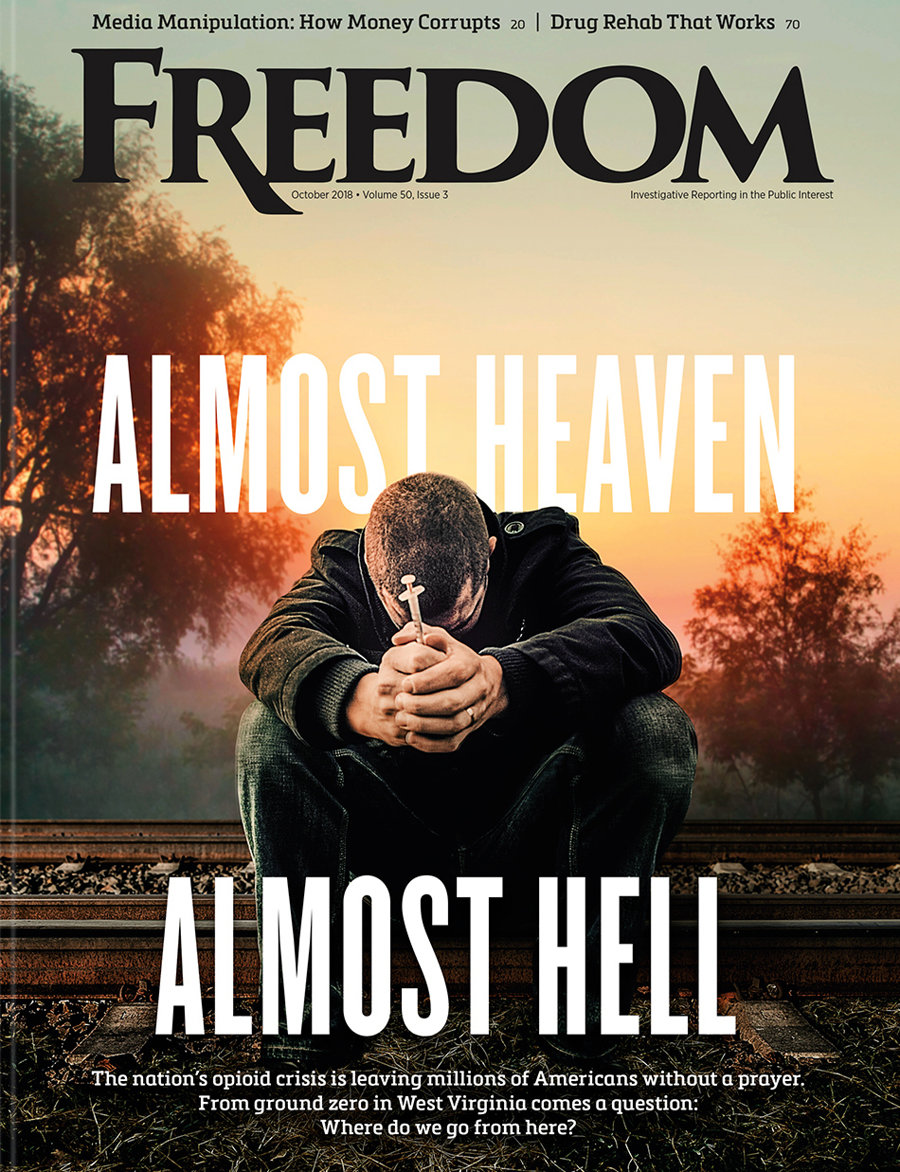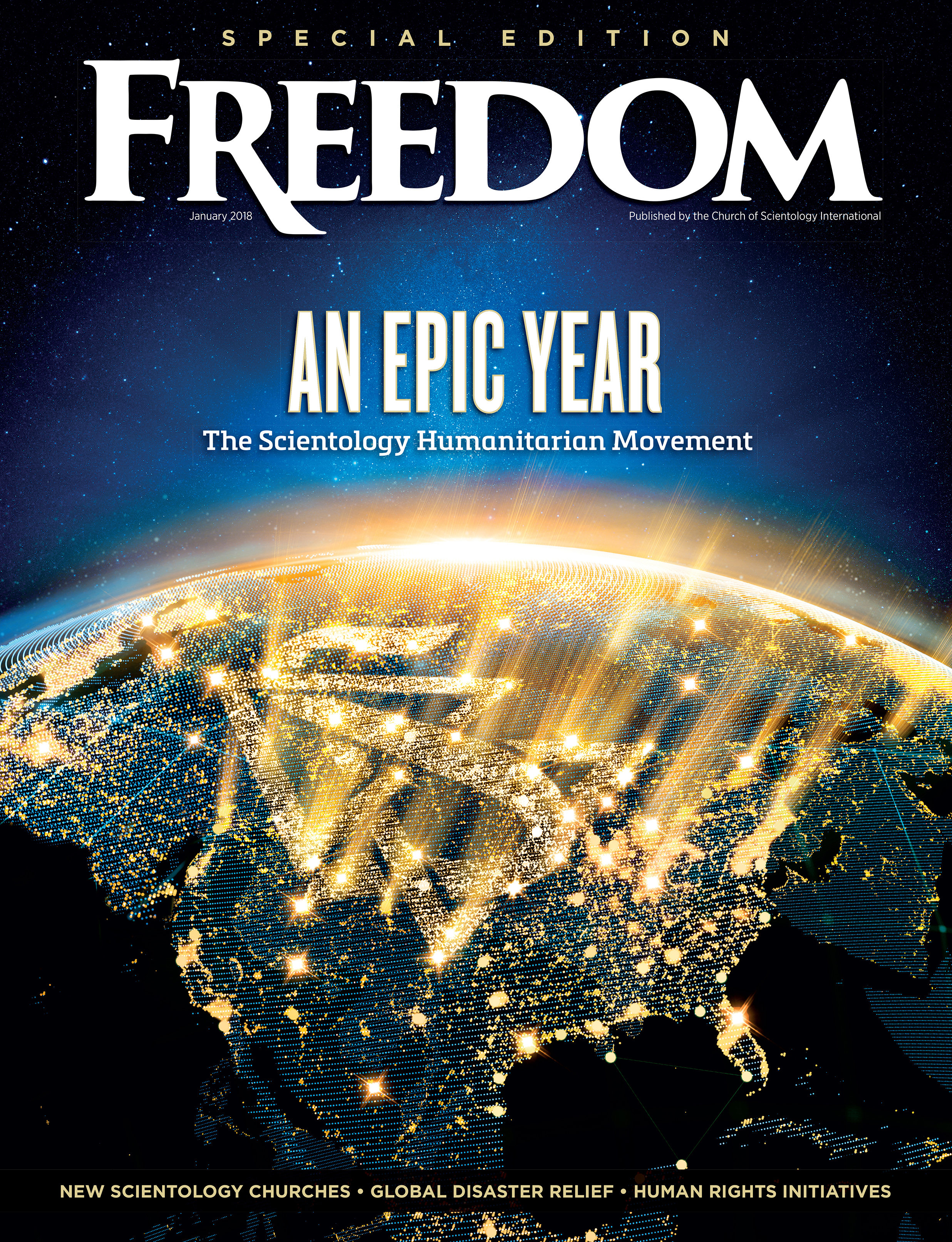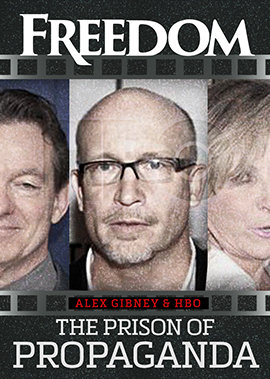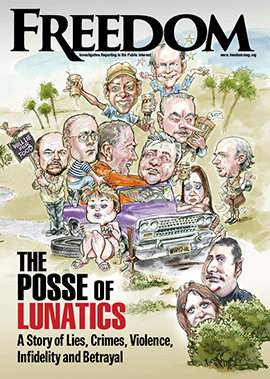He would burn down her grandmother’s house and stab her pregnant belly if she didn’t do what she was told, he said.
His demand: Let him use her phone to entice another homeless and hungry underage girl to perform sexual acts for money. She was 17. That underage girl was even younger.

Tiffany, the older girl, knew these were not idle threats from her sex trafficker. She knew what he was capable of. He had already stabbed her in the knee, beaten her multiple times and once, in an instance of rage, tried to run her over—all for saying no to his demands.
This time, she obeyed. She and the younger girl were taken to a trailer at a construction site where they were purchased by a group of men who proceeded to have their way with them.
For allegedly helping to procure the younger girl, Tiffany was sentenced to 30 years for child sex trafficking.
Wait. What? She was forced into sex trafficking when she was still legally a child. It was “you do this or you die.” She was the victim, not the perpetrator. Yet her story is only one of many similarly tragic injustices chronicled by advocate Andrea Powell in her uncompromising new memoir.
“The media loves a victim story, but what they really want is the ‘perfect’ victim.”
Appropriately named, Believe Me isn’t beach reading. It’s demanding, relentless and utterly riveting. Based on that largely unspoken and unheeded plea of sex trafficking survivors—“Believe me!”—it offers an eye-opening, jaw-dropping account of the routine injustice meted out to victims of the most horrific crime on Earth, as well as their brave, weary, often stymied but never defeated advocates.
Andrea Powell is our guide on this journey. As the founder of Karana Rising, which advocates for systemic change to ensure survivors of sex trafficking aren’t wrongfully arrested and incarcerated, she knows—all too heartbreakingly well—whereof she speaks.

Andrea found her life’s purpose in Europe when Aischa, a fellow teenage exchange student there, inexplicably vanished. Aischa was the youngest of four wives in a Syrian marriage apparently arranged by her own parents. Aischa had been routinely beaten, and she and Andrea had worked out a way for her to escape the abuse. But now she was gone. No one seemed to care. The frustrating wall of indifference Andrea was met with from law enforcement when she tried to report Aischa as missing spurred Andrea to help others overcome justice systems that simply can’t or won’t believe their most vulnerable citizens.
Human trafficking is one of the world’s most profitable illegal industries, second only to the drug trade. A recent report from the UN’s International Labour Organization shows that traffickers’ annual profits have risen $64 billion over the last decade, to a staggering $236 billion per year.
In 2012, Tiffany sent Andrea a letter from the Georgia prison where she was serving her sentence. “Am I a victim of sex trafficking or a prostitute?” she asked. Still legally a child, uneducated in the law, trusting her court-appointed lawyer, with no one else advocating on her behalf, dismissed as unworthy and immoral, she had begun to believe the lies herself.
“The media loves a victim story, but what they really want is the ‘perfect’ victim,” Andrea explains in Believe Me. “So, don’t be too loud; don’t be promiscuous as a teen; and, ideally, be blonde, white and conventionally cute. Oh, and if you’re a boy, it will be assumed you’re gay if you were trafficked.... Don’t be a runaway and don’t do drugs because, if that’s the case, then you were asking for it. Of course, you must come from a good nuclear family with a mom and dad and cute dog. Oh, and if you have any prior arrests or are a juvenile delinquent, forget it. You’re a lost cause, not a victim worth saving.
“We need more than laws; we need a total revolution of compassion.”
“You should also get ready for endless questions about why you didn’t just leave. And, if you fought back against your trafficker or the man who bought and raped you, why didn’t you let the police handle it? Clearly, you’re just a violent criminal. Stereotypes about what makes someone a ‘perfect victim’ are why the public, school systems and courts do not see most people in trafficking situations as victims crying for help.”
For two decades, Andrea has educated, advocated and reiterated to lawmakers, law enforcers and victims alike the simplicity that “we need more than laws; we need a total revolution of compassion.” Navigating the murky legal labyrinth that confuses willful prostitution with sex trafficking, she encountered dead ends, booby traps and stupidity in seeking justice for Tiffany and scores of other victims.
With Tiffany’s continuing struggle to be heard and believed as the backdrop, Andrea tells further stories—of siblings Jessica and Jordan, convicted and jailed after being sex trafficked as teens; of Alana, who could be imprisoned deep into her seventies for similar crimes not of her choosing; of Lisa, Anita and Ashley, all, thankfully, freed now and creating new lives for themselves.

In telling these stories, Andrea forces us to see what she sees: ignorant or recalcitrant lawyers and judges, congressmen more concerned with constituent votes than the Constitution, Backpage (the multimillion-dollar flesh market that helped make sex trafficking the second-biggest crime in America) and a few courageous allies who, together, build a community of help for the helpless—and who, bit by bit, reform by reform, chip away at society’s colossus of indifference toward victims of sex trafficking.
“Believing survivors isn’t just the right thing to do. Your belief in a survivor could change their life,” Andrea writes. “It’s an act of stepping outside yourself and seeing a whole person, not a story. This is more than a story about sex trafficking and injustice, it’s about kindness in its more fierce form.”
Repeatedly assured that a victim had no chance of a fair hearing, that this judge refused to be contradicted or that that law had no chance of ever getting passed, Andrea Powell refused to listen when others told her it was impossible.
Now she wants us to listen.
And help.
Learn more about Believe Me here.
As part of the Church of Scientology’s work to bring about a world where human rights are a fact, not an idealistic dream—a vision set forth by Founder L. Ron Hubbard and championed by ecclesiastical leader David Miscavige—the Church sponsors the largest nongovernmental information campaign to advance the United Nations Universal Declaration of Human Rights.
Under the banner of Human Right #4, “No Slavery,” the Church works alongside advocates and champions like Andrea Powell across the globe to end the scourge of human trafficking.






















